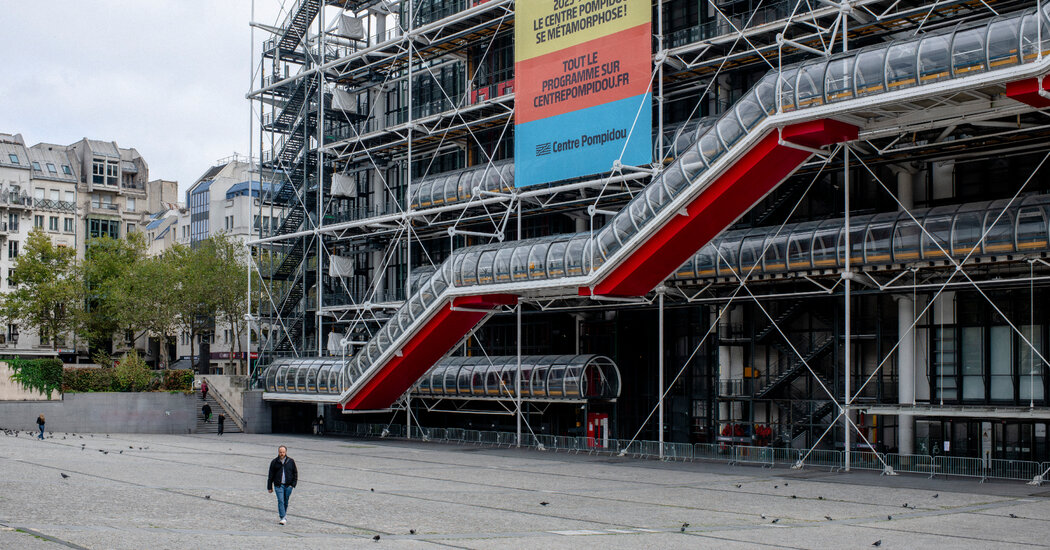Copyright forbes

Masks are fun at Halloween, but find out why experts warn that masking who you really are at work can be dangerous for your mental health and risky for the company's bottom line. In September of this year, I wrote a story for Forbes.com about "quiet covering,” and it struck a nerve, receiving wide readership. The trend plays out at work when employees feel they cannot be themselves out of fear of not being accepted for who they are, judged or denied promotions within the company. Since then, research shows that the trend has evolved (or devolved) into an increase in what experts are calling “performative professionalism.” The Double-Bind Of 'Performative Professionalism’ The American workforce is caught in a double bind, working in a culture that preaches authenticity, encouraging strategies for workers to stand out so they can be rewarded, while simultaneously penalizing employees who stand out as different--even unpromotable. Research shows that 97% of employees hide at least some of the time, and 67% cover often. Why? The researchers discovered numerous reasons: to maintain a professional image (55%), for social acceptance (48%), to avoid discrimination (46%), to increase the likelihood of getting a promotion, raise or bonus (46%) or to increase the probability of getting a better year-end review (43%). Cases include individuals who cover up their age because they’re older than their other team members. Workers hide their sexual orientation, political views or the fact that they have attention deficit disorder--out of fear of judgment and career harm. Professionals are editing themselves to survive the workplace, and it’s affecting performance, retention and psychological safety. Several new studies are showing through data how covering up who you are has led to “performative professionalism,” a more visible form of self-editing where employees go beyond hiding who they really are by marketing who they think they’re supposed to be. MORE FOR YOU “Bring your whole self to work” has become the rallying cry of the modern workplace culture. If you’re like most workers, you’re constantly encouraged not to hide behind the proverbial potted plant in the corner of your office. And you’re reminded that invisibility is a career killer, preventing you from standing out at work. It’s difficult to bring your whole self to the workplace in an era of layoff anxiety and economic fears. So, employees are forced into the double-bind of doing the complete opposite: Hide who you really are out of fear of job loss and pretend to be someone you’re not. “Performative professionalism” is a shield employees use to protect themselves from outdated business practices that give lip service to openness, yet punish employees for actually being who they are. Workers say they’re pressured to perform relatability, while editing out the parts that make them real. This is the next step in the “quiet” trend as employees are moving beyond masking identity, by moving to monetize it. A new study from Aurora University reveals that a work culture, preaching authenticity, is driving an arms race of curation. The findings show that 50% of professionals now say a strong personal brand matters more than a resume, yet 38% report burnout from maintaining it. And 52% of workers say the "performative professionalism" trend forces them to conceal parts of their identity or background just to appear more professional. Here are more of the key findings: 52% hide parts of their identity or background to appear more “professional.” 49% admit to holding back from self-promotion to avoid appearing arrogant or fear of being judged for self-promotion based on their age or gender. 38% say maintaining a personal brand contributes to burnout. 18% feel constant pressure to curate or appear inauthentic at work. 46% have deleted or revised posts out of fear of judgment. 40% have taken a break from visibility, with an average pause of two Other data also shows that 55% of Gen Z are caught in a double bind of promoting a strong professional image but pressured to suppress aspects of their personal lives that don’t align with traditional workplace expectations. All the studies suggest that the double bind causes stress and leads to burnout. The Dangers Of 'Performative Professionalism’ If employees could be open enough to bring their “whole selves to work,” it would yield higher engagement and productivity, greater team work and a more profitable bottom line for Corporate America. But the call to be authentic is a setup for millions of American workers who fear that being authentic puts their neck on the chopping block. Tia Katz, founder of Hu-X, told me that, when young workers hide their mental health challenges, self-care habits or past experiences to project a strong professional image so they’re more promotable, it’s an indication of the immense pressure they feel to conform, succeed and establish credibility in their careers. “When authenticity is treated as a liability, companies lose out on creativity, productivity and innovation," she stresses. "It also drives up stress and lowers engagement in ways that are often invisible until they affect retention and performance.” According to Rachel Shaw, ADA compliance expert and author of The Disabled Workforce, many employees avoid sharing their mental health struggles, using resources available to them or taking leaves when they’re sick. The stigma that pervades the workplace causes the 75% of workers who have anxiety or depression to fear being penalized, labeled or judged for their mental health challenges. Shaw told me that, while real progress has been made in talking about mental health at work, stigma still runs deep. “Many employees continue to hide or downplay their mental health conditions, because they fear being judged, sidelined or labeled ‘unreliable,’” she says. Here’s the irony, Shaw argues, “Supporting mental health in the workplace is one of the most cost-effective compliance actions an employer can take. Most accommodations cost little or nothing, and the average cost of those that do is around $300.” And when you weigh that against the cost of turnover, lost productivity or litigation, she insists that it’s clear—training supervisors and HR teams to handle these accommodation needs well isn’t just the right thing to do; it’s a smart business strategy. Shaw concludes that when the stigma of differences is removed and psychological disabilities are treated with the same legitimacy as physical ones, we comply with the law and build workplaces where people feel safe to ask for what they need. That’s where trust and productivity grow and where "performative professionalism” becomes a dinosaur of the past. Editorial StandardsReprints & Permissions



